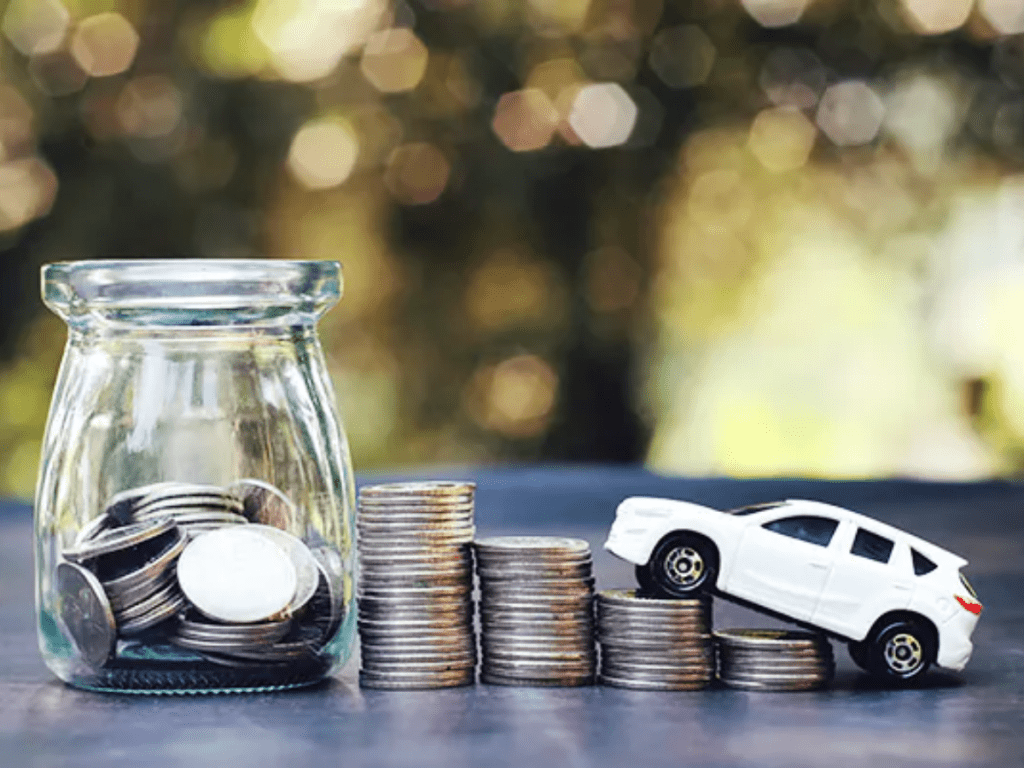Introduction
When you take out an auto loan to finance the purchase of a vehicle, you’re entering into a financial commitment with the expectation that you’ll repay the loan within the agreed-upon time frame. However, life is unpredictable, and sometimes circumstances arise that make it difficult to meet financial obligations. One such situation is defaulting on an auto loan. Defaulting can lead to a series of severe consequences, one of the most concerning being the impact it can have on your car insurance policy. Understanding the full scope of these implications is crucial for anyone who is facing financial difficulty or simply wants to be prepared for potential future challenges. This article will explore what happens if you default on your auto loan and the subsequent implications it may have on your insurance policy.
1. Understanding Auto Loan Default
Defaulting on an auto loan occurs when the borrower fails to make their scheduled payments according to the loan agreement. Generally, an auto loan is considered in default after the borrower misses multiple payments, typically after 60 or 90 days of non-payment. Once the loan defaults, the lender has the legal right to take action, such as repossessing the vehicle. Repossession is one of the most immediate consequences of loan default, but it isn’t the only financial repercussion.
While the exact timeline for defaulting can vary depending on the lender, the broader consequences typically follow a similar pattern. If the borrower continues to neglect the payments, the vehicle may be repossessed, and the borrower’s credit score will be negatively impacted. A lower credit score can affect future loans, credit card approvals, and even rental applications.
2. The Role of Insurance in an Auto Loan
When you finance a vehicle with a loan, the lender typically requires you to carry insurance on the vehicle. This insurance serves as a safety net for both you and the lender in the event that something happens to the vehicle, such as damage from an accident or theft. The two primary types of insurance coverage required in most loan agreements are collision and comprehensive insurance, which provide protection for the vehicle itself, regardless of who is at fault for the damage.
In many cases, the lender’s requirement for insurance coverage continues for the duration of the loan. If you fail to maintain the required insurance, the lender may step in and purchase a policy known as “force-placed” insurance, which is generally more expensive and offers limited coverage. This is a costly situation and is often seen as a last-resort measure by the lender to protect their investment.
However, insurance implications become even more complicated when the borrower defaults on the loan. The following sections explore what can happen to your car insurance policy if you default on your auto loan.
3. Impact of Default on Your Car Insurance Coverage
Loss of Required Coverage: If you default on your auto loan, the lender may initiate repossession of your vehicle. Once the vehicle is repossessed, you will no longer own it, which means your insurance policy might need to be altered or canceled. Insurance policies are typically tied to the vehicle and its owner. Since you no longer own the car, your insurance coverage may be canceled, and you may be required to switch to a different policy that reflects the loss of the vehicle.
Force-Placed Insurance: As mentioned earlier, if you default on your loan and the lender reposes the vehicle but keeps the loan open, they might place force-placed insurance on the car. Force-placed insurance is often much more expensive than regular auto insurance. This type of insurance only covers the lender’s interests in the vehicle, not yours. If you end up in a situation where the lender has placed force-placed insurance, the cost of this coverage is usually added to your loan balance, making it even harder to get out of debt.
Increased Premiums After Repossession: Another consequence of defaulting is that your car insurance premiums may increase dramatically. Some insurers view repossession as a sign of financial instability or irresponsibility, which could lead to higher premiums for any future car insurance policies. If you end up needing to purchase a new car after the repossession, you may find that your rates are significantly higher due to your default and repossession history.
Impact on Coverage Limits: If you keep the vehicle and continue making insurance payments even after the loan has been defaulted on (in cases where the lender has not yet repossessed the vehicle), there could be a reduction in your coverage limits. Some insurance companies may alter your policy to reflect the risk associated with a defaulted loan, and this could leave you vulnerable to paying higher out-of-pocket costs in the event of an accident or damage.
4. Insurance Consequences of Repossession
Repossession is the most direct consequence of defaulting on an auto loan. When the lender repossesses the car, it typically comes with a series of insurance-related consequences that can affect the borrower in various ways.
Insurance Cancellations and Refunds: In some instances, when your car is repossessed, your insurer will cancel the policy and issue a refund for any unused premium. However, this depends on the type of insurance policy you have and the insurance company’s policy regarding repossession. If your lender places force-placed insurance on the vehicle, the refund will not apply to the new coverage. In some cases, lenders may request that the borrower pay for any unpaid insurance premiums or costs incurred by the force-placed insurance.
No Insurance for Repossessed Vehicles: If your car is repossessed, it may be taken to an auction or impound lot. At this point, the car is typically no longer insured under your policy. The lender may then be required to insure the vehicle through their force-placed policy or may choose not to insure it at all. This could complicate matters for you if you are still responsible for the loan and end up in a situation where the car is damaged, lost, or stolen.
5. How Defaulting Affects Future Auto Insurance Policies
Defaulting on an auto loan can have a long-lasting effect on your financial standing, especially when it comes to securing future car insurance. Here are some of the ways that defaulting can impact your ability to get insurance and how much you will pay for it:
Higher Premiums for Future Insurance Policies: Insurers assess the risk associated with each policyholder. When your credit score takes a hit from defaulting on an auto loan, your insurance premiums may increase because you are considered a higher risk. Many insurance companies use credit-based insurance scores to set premiums, and a lower score means you could pay more for coverage.
Difficulty Finding Coverage: Depending on the severity of the default and repossession, some insurance companies may refuse to cover you entirely. Insurance providers may classify you as a “high-risk” driver, making it more difficult to find an affordable policy. In some extreme cases, a person who defaults on an auto loan may only be able to get coverage through specialized high-risk insurers, which can be far more expensive.
Insurance for Subprime Borrowers: If you are still looking to purchase a new car after defaulting on an auto loan, you may be classified as a subprime borrower. As a result, you may face higher car insurance premiums. Some insurance companies offer special policies for subprime borrowers, but these policies are often costly and provide limited coverage compared to standard policies.
6. Insurance Implications for Deferring or Refinancing Auto Loans
If you’re struggling to make payments and defaulting on your loan seems imminent, you may explore options like deferring your payments or refinancing your loan. Both options can provide some financial relief, but they can also have implications for your insurance.
Refinancing and Insurance: If you refinance your loan, you may be able to reduce your monthly payments or secure a lower interest rate. However, this could still result in changes to your insurance policy, depending on the lender’s requirements. You may be required to keep the same level of coverage, or you may need to purchase additional coverage, such as gap insurance, to protect the lender’s interests in the event of a total loss.
Deferring Payments: Some lenders may allow you to defer a payment or extend your loan term to provide short-term financial relief. If you defer your payment, it may not have a direct impact on your insurance policy, but you may still need to ensure that your insurance remains in force to protect the vehicle while you continue to make payments.
7. Preventing Default and Mitigating Insurance Implications
The best way to avoid the negative insurance implications of defaulting on an auto loan is to ensure that you are able to make timely payments. Here are some steps that may help you prevent default and protect your insurance coverage:
- Stay in Communication with Your Lender: If you are struggling to make payments, reach out to your lender immediately. Many lenders offer forbearance programs, loan modifications, or other options to help you manage your payments before the loan defaults.
- Refinance Early: If you are finding it hard to meet your monthly payments, consider refinancing your loan early. Refinancing could result in a lower monthly payment or more favorable terms, which could make it easier to keep up with the payments.
- Consider Gap Insurance: If you are concerned about the financial impact of a default and repossession, consider purchasing gap insurance. This type of insurance will cover the difference between what you owe on the loan and the actual cash value of the vehicle in the event of a total loss.
Conclusion
Defaulting on an auto loan is a serious financial situation that can have wide-ranging implications, including affecting your insurance coverage. From force-placed insurance to higher premiums and the potential for difficulty in securing future coverage, the impact of default extends beyond the initial loan default. It is crucial to stay proactive and communicate with your lender if you are facing financial difficulties. Additionally, taking steps to ensure that you have the proper insurance coverage and exploring options like refinancing or deferring payments can help mitigate the negative effects on your insurance and your financial future.

